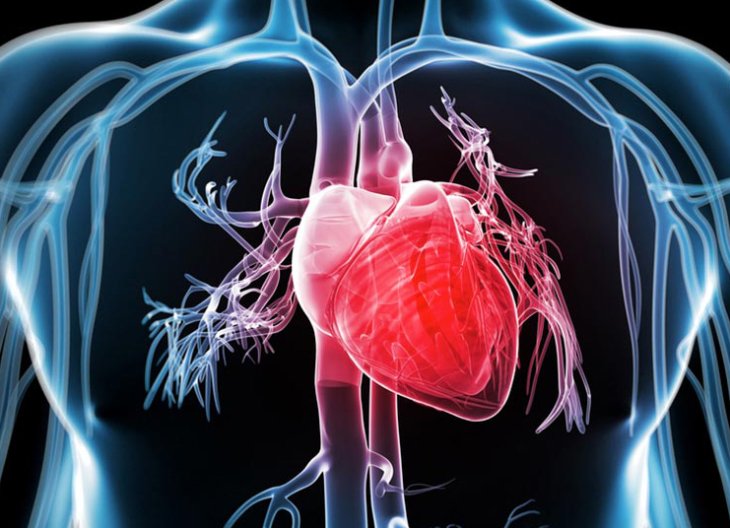Combine AI With ECG For Early Detection Of Heart Conditions
Chander Sinha - Jan 11, 2019

Researchers are looking for a new way to detect heart conditions and they are feeling very positive with AI in combination with the Electrocardiogram.
- Google's Project Genie: Premium Subscribers Unlock Interactive AI-Generated Realms
- New ‘Deep Nostalgia’ AI Allow Users To Bring Old Photos To Life
- Pilots Passed Out Mid-Flight, AI Software Got The Aircraft Back Up Automatically
A new study shows that detecting a heart condition is possible through applying AI (Artificial Intelligence) to an inexpensive and widely available test.
According to the researchers from the Mayo Clinic of Minnesota, using Artificial Intelligence alongside the ECG (Electrocardiogram) leads to not only an affordable but also an early and simple indicator of asymptomatic left ventricular dysfunction that is prone to be diagnosed with less accessible as well as costly imaging tests, like CT, MRI or echocardiograms scans.

This kind of dysfunction can be detected by the existence of a somewhat weak heart pump carrying quite a high risk of causing heart failure that is related to the reduction in longevity as well as living quality.
The study has shown that asymptomatic left ventricular dysfunction can be reliably detected when we apply Artificial Intelligence to a standard Electrocardiogram.
Paul Friedman from the Mayo Clinic expressed:

Digital data collected from 625,326 persons is used for the study where the team paired electrocardiogram with transthoracic echocardiograms.

Research that has been published in Nature Medicine shows that the AI/ECG test has a favorable accuracy compared with some other screening tests that most of us have heard of like cervical cytology (cervical cancer), mammography (breast cancer) as well as prostate-specific antigen (prostate cancer).
Additionally, the result showed that patients who did not have ventricular dysfunction but still got positive in Artificial Intelligence screen we had the risk of having ventricular dysfunction in the future four times higher than those who got the negative screen.
Friedman said:

Noted that according to the study that once it is identified, the asymptomatic left ventricular dysfunction will very likely be treatable.
Featured Stories

Features - Jan 29, 2026
Permanently Deleting Your Instagram Account: A Complete Step-by-Step Tutorial

Features - Jul 01, 2025
What Are The Fastest Passenger Vehicles Ever Created?

Features - Jun 25, 2025
Japan Hydrogen Breakthrough: Scientists Crack the Clean Energy Code with...

ICT News - Jun 25, 2025
AI Intimidation Tactics: CEOs Turn Flawed Technology Into Employee Fear Machine

Review - Jun 25, 2025
Windows 11 Problems: Is Microsoft's "Best" OS Actually Getting Worse?

Features - Jun 22, 2025
Telegram Founder Pavel Durov Plans to Split $14 Billion Fortune Among 106 Children

ICT News - Jun 22, 2025
Neuralink Telepathy Chip Enables Quadriplegic Rob Greiner to Control Games with...

Features - Jun 21, 2025
This Over $100 Bottle Has Nothing But Fresh Air Inside

Features - Jun 18, 2025
Best Mobile VPN Apps for Gaming 2025: Complete Guide

Features - Jun 18, 2025
A Math Formula Tells Us How Long Everything Will Live
Read more

Mobile- Feb 17, 2026
Anticipating the Samsung Galaxy S26 and S26+: Key Rumors and Specs
The Samsung Galaxy S26 series is on the horizon, sparking excitement among tech enthusiasts.

ICT News- Feb 18, 2026
Google's Project Toscana: Elevating Pixel Face Unlock to Rival Apple's Face ID
As the smartphone landscape evolves, Google's push toward superior face unlock technology underscores its ambition to close the gap with Apple in user security and convenience.

ICT News- Feb 19, 2026
Escalating Costs for NVIDIA RTX 50 Series GPUs: RTX 5090 Tops $5,000, RTX 5060 Ti Closes in on RTX 5070 Pricing
As the RTX 50 series continues to push boundaries in gaming and AI, these price trends raise questions about accessibility for average gamers.

Mobile- Feb 16, 2026
Xiaomi Launches Affordable Tracker to Compete with Apple's AirTag
For users tired of ecosystem lock-in or high prices, the Xiaomi Tag represents a compelling, no-frills option that delivers core functionality at a fraction of the cost.
Comments
Sort by Newest | Popular